Hello! I’m Kawai from the Nutrition Management Department in Cambodia. The rainy season settled down last month and the days are a little chilly. I am hoping that these cool days will continue for a long time.

Recently, the perinatal department held an infant health check-up day. We in the nutrition department took the opportunity to conduct the “First 1000 Days of Nutritional Guidance” project, mainly with our Cambodian staff.
This project is based on The First 1000 Days Project, which is being implemented in many nutrition projects in developing countries. It aims to convey the importance of diet from conception until the child turns two.
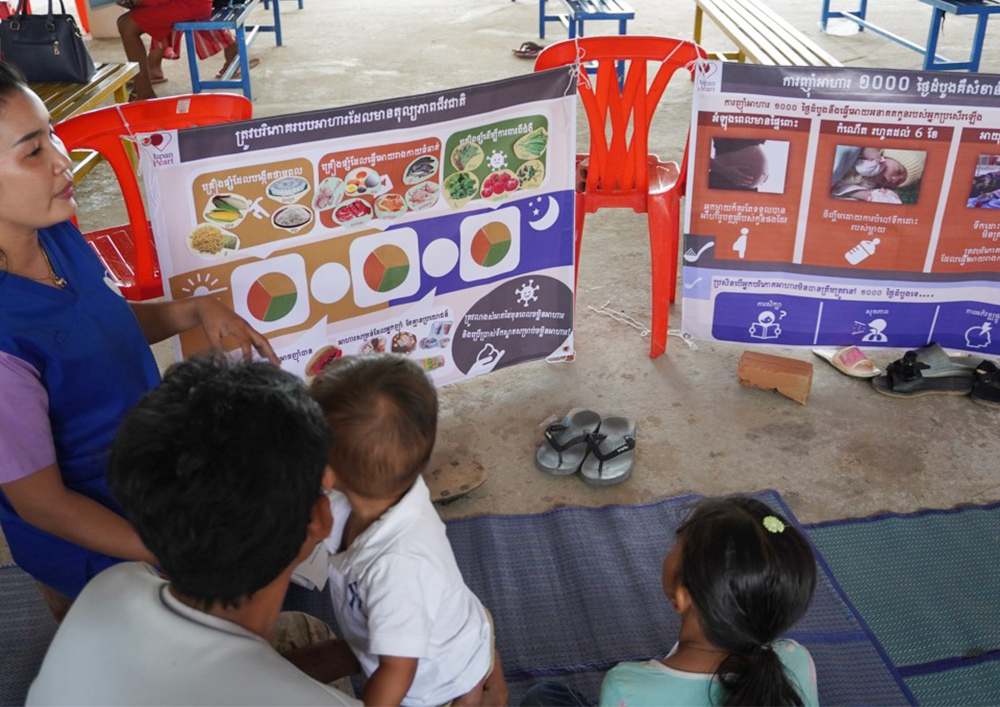
There are about 1000 days from a 9-month pregnancy until a child turns 2, which is the most critical time for nutritional intervention, especially in places where access to food and nutrition/health are not as well established as in developed countries. In these environments, proper care from healthcare professionals is required.
The content of the guidance is based on the IYCF (Infant and Young Child Feeding) recommended by the WHO, with a focus on matters that correlate with inequality, especially in Cambodia where the gap between rich and poor is large. Additionally, it will include the importance of breastfeeding and basic nutritional balance.
6 weeks beforehand, we had a meeting with the perinatal staff to discuss what kind of knowledge is required and to consider the content. Many children around the age of 1 and their mothers visited the infant health check-up, so in addition to the importance of nutrition for the first 1000 days, we also explained the importance of supplementary diets and how to provide an appropriate diet.
We made a poster as a medium to convey guidance. In the future, we aim to raise awareness even in places where electricity is not stable. We have finished a design with many illustrations and photographs so that local staff with little teaching experience can easily utilise it.
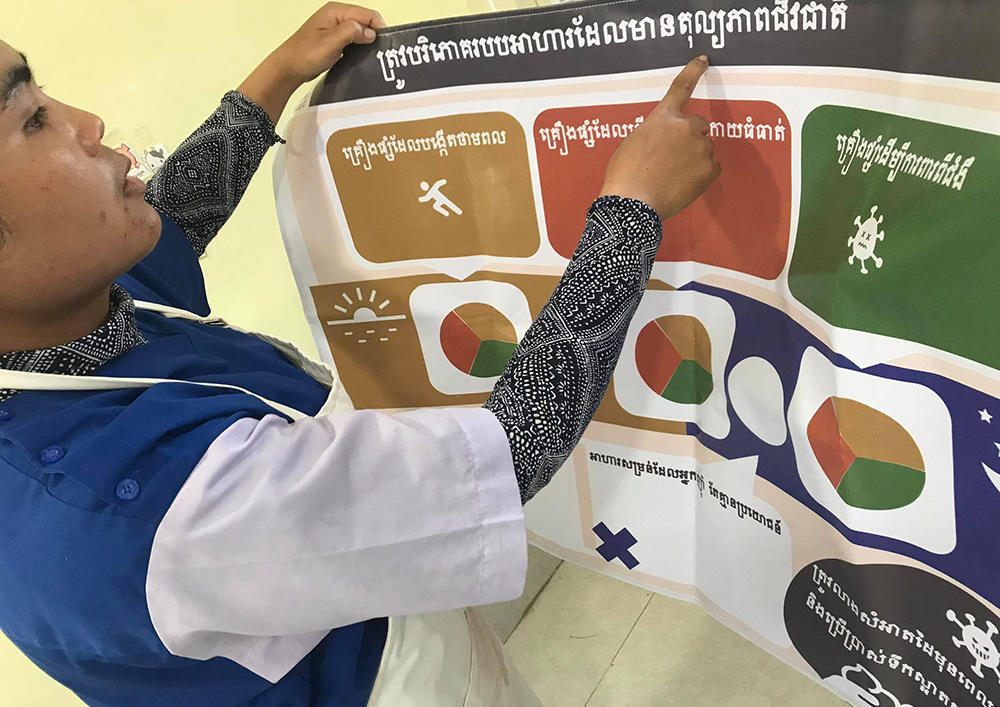
On the day of the health check-up, we used the examination waiting time to spend an hour and a half giving a lecture to about 30 people. Instead of top-down instruction, we sat in a circle with the mothers to create an environment that made it easy for everyone to take part and speak.
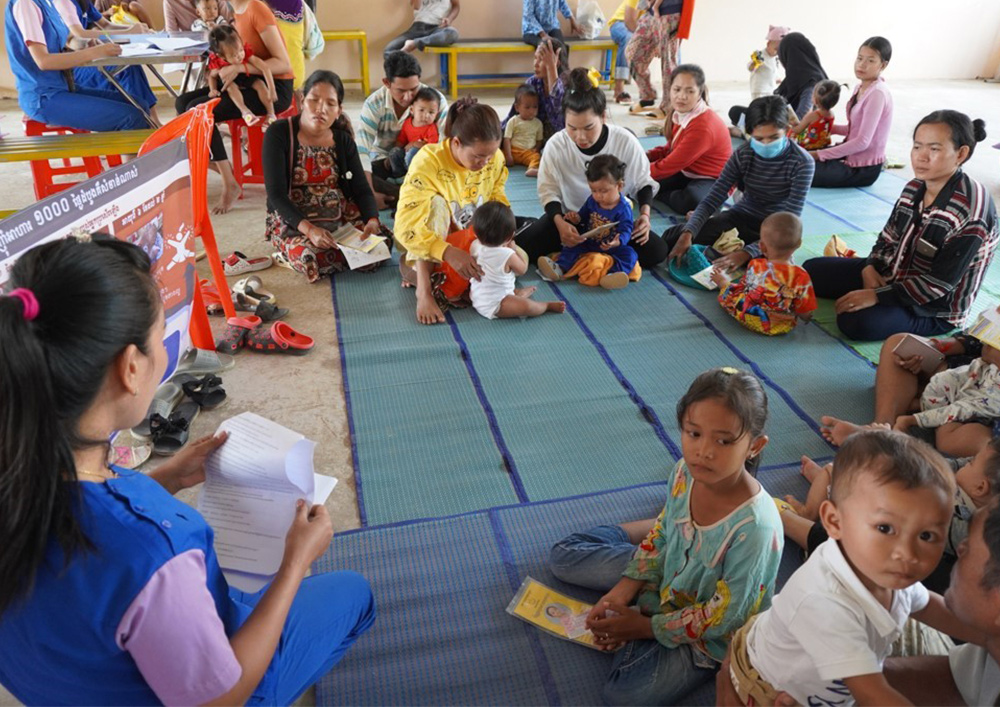
Many of the attendees were first time mothers and after the lecture we were able to spend time answering their questions. As it was the first time for the nutrition department to experience teaching, there were some improvements to be made in the future. We have been holding weekly meetings in November to help them establish their own knowledge and practice it.
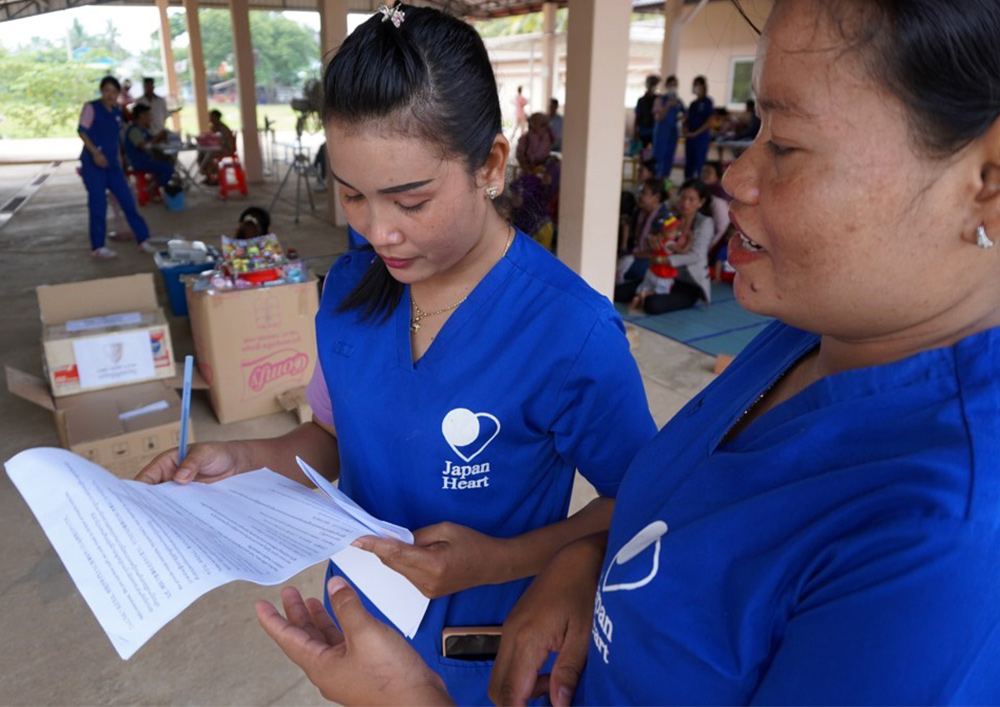
Additionally, we provided individual nutritional guidance to children who did not meet the Cambodian Maternal and Child Health Card’s recommended weight.
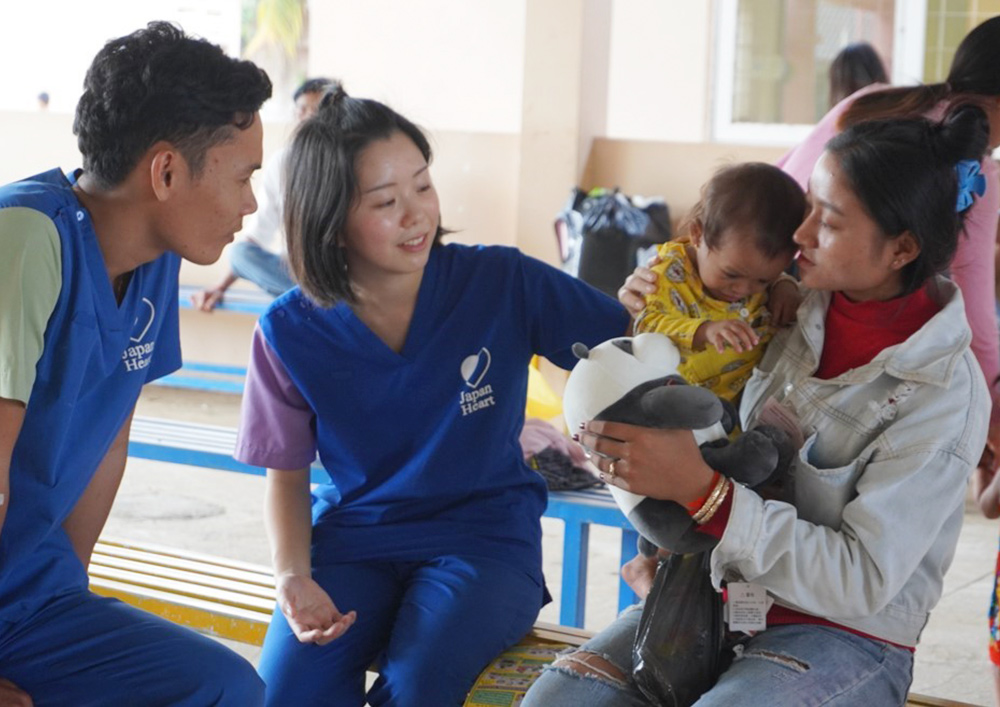
It is not yet common to take a baby to regular medical examinations and have their growth monitored, especially in rural areas, but we would like to use our platform to make inroads in this area.
We are asking ourselves how we can educate people who have not had the opportunity to learn about the importance of nutrition in the first place, and influence a positive change in behaviour.
In the future, I would like to learn from these experiences along with the staff of the Nutrition Management Department to further these kinds of activities in the hospital.
Nutrition Management Department, Ms. Kawai

